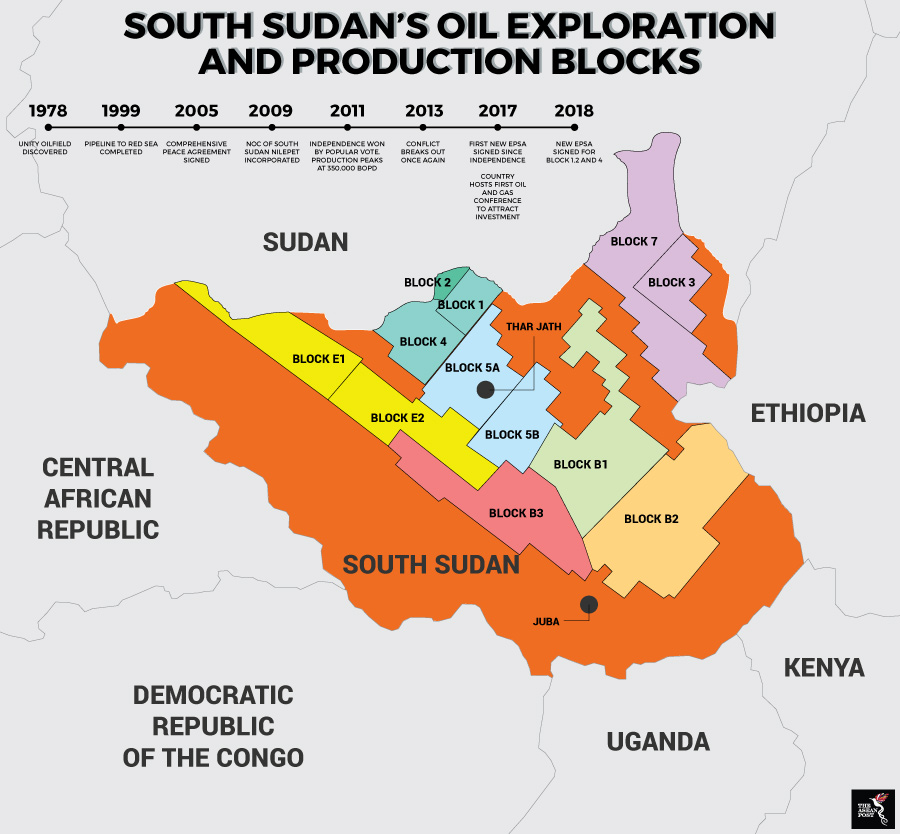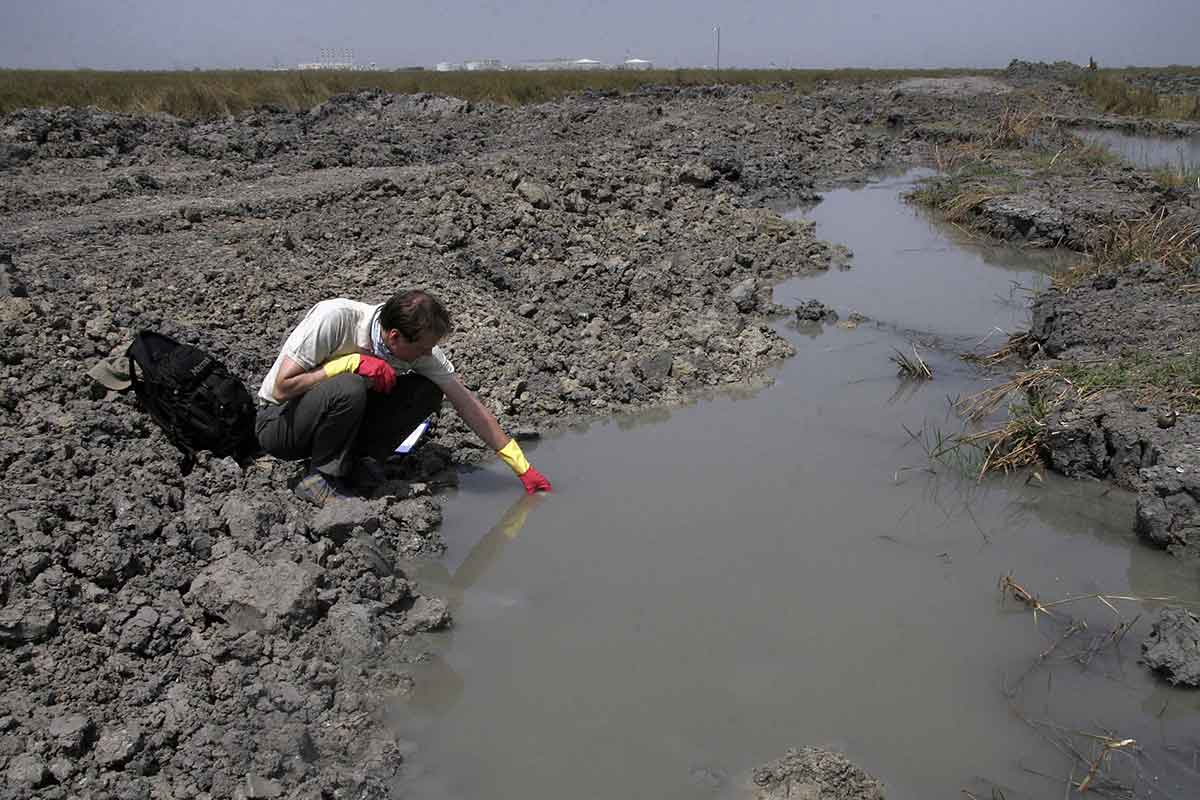In efforts to restore its petroleum sector after years of conflict-driven disruption, the government of South Sudan has extended the Exploration Production Sharing Agreement (EPSA) and Transitional Agreement Extension for three blocks in September this year. This involves oil concessions in Blocks 1, 2 and 4 being awarded to Malaysia's Petroliam Nasional Berhad (PETRONAS), China National Petroleum Corporation (CNPC), South Sudan's state-run Nile Petroleum Company (Nilepet), and India's Oil and Natural Gas Corporation (ONGC Videsh).
According to South Sudan’s Petroleum Minister Ezekiel Lul Gatuoth, the target is to hit peak oil output of 350,000 barrels per day (bpd) by mid-2019, through production at oilfields that were offline due to the protracted crisis. This is similar to output levels in 2011 when South Sudan seceded from Sudan.
“We have extended Block 1, 2 and 4 for six years and eight months. They will continue operating there. It is a win-win for all of us,” said Gatuoth.
Before the split, production in the areas belonging to South Sudan after the secession accounted for more than 70 percent of the overall output. Since civil conflicts reignited in 2013, oil production in South Sudan dwindled to below 130,000 bpd.
The world’s youngest country, with the third biggest oil reserves in sub-Saharan Africa, is also the world’s most oil-dependent country. The oil and gas sector contributes to around 60 percent of the gross domestic product (GDP) and oil accounts for almost all exports. The recommencement of its production comes almost after five years of suspension due to civil conflict, in parallel with the 12th peace agreement signed between the president of South Sudan Salva Kiir and former vice-president and rebel leader Riek Machar.
PETRONAS’ presence in South Sudan
PETRONAS’ long stint in South Sudan has been marked by recurring accusations, including an alleged involvement in underground water contamination in the oil producing region of Thar Jath, located around 450 kilometres from Juba. According to German non-governmental organisation (NGO), Sign of Hope (SoH), dangerous heavy metals such as lead and barium from PETRONAS’ oil production had allegedly leaked into drinking water sources used by more than 180,000 locals. A written statement on the same subject was also submitted to the United Nations Human Rights Council (UNHCR), at its 34th session, in February 2017.
According to the statement, a hydro-geological study in November 2014 confirmed that exploration and production of oil is causing severe contamination and a toxicological study released in December 2016 on human hair samples proved that contaminated water had been consumed by the people residing in the catchment area.
“As a consequence, the lives and livelihoods of these more than 180,000 human beings are being impaired – even destroyed,” the statement reported. According to the statement, following the report, SoH was threatened by representatives of the South Sudan's Ministry of Petroleum and Mining.
The Thar Jath oil treatment facility, operated by the consortium Sudd Petroleum Operating Company (SPOC) led by PETRONAS, was abandoned days after war broke out. Further damage also took place in the fighting. The internal strife has killed tens of thousands, while 2.3 million more have been displaced.
In March this year, Reuters reported an accusation by the South Sudanese lawmakers that the consortium running the country’s last working oilfields had allegedly dumped expired chemicals in the bush.

Sources: Various sources.
PETRONAS’ water project near Juba
Following the oil concession extension award, PETRONAS announced the launch of its ‘Water for Life’ corporate social responsibility project carried out by its South Sudan-based subsidiary PETRONAS Carigali Nile Ltd. The first phase of the project will be carried out in Gudele West, 10 kilometres away from Juba.
‘Water for Life’ is a regular corporate social responsibility (CSR) program for local communities in PETRONAS’ operation areas. This is the first of its kind in South Sudan. The project is carried out in collaboration with South Sudan's Ministry of Petroleum and a national NGO, Nile Hope.
Aimed at providing sufficient safe and clean water to local communities, the project will be extended to four other locations near the Juba area. According to the statement, at the end of the fourth phase, it is expected to benefit more than 40,000 residents around Juba.
As a young country, much of the South Sudan’s future growth trajectory relies on its natural resources, as well as its human capital. Lead and barium contamination are impacting on the country’s future. While causality is unclear due to limited information, fixing the water security issue suffered by local communities in the area of operations should be the priority.
Related articles:
Facing up to dwindling oil and gas resources
